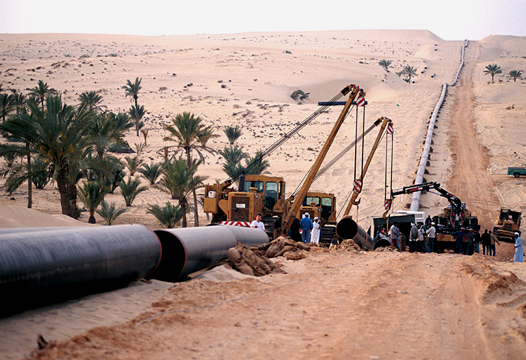Nigeria and Libya are discussing the revival of a pipeline project that would transport Nigerian gas to Europe via Libya. The two countries recently held a meeting to exchange technical information and launch feasibility studies on this route.
A strategic route with competing options
This project could serve as an alternative to other initiatives currently underway. The route through Libya is estimated at around 3,300 kilometers, making it shorter than the proposed Trans-Saharan Gas Pipeline (through Algeria) and the Nigeria–Morocco pipeline project. One key advantage is that it could connect directly to the existing Greenstream pipeline, which already links Libya to Italy.
A project with mutual benefits
For Nigeria, the goal is to diversify its exports and open new markets for its gas. The country is also exploring other options, such as the pipeline to Morocco or the expansion of the West African Gas Pipeline.
Libya, for its part, seeks to increase hydrocarbon production and leverage its reserves. This project would allow it to strengthen its role as a gas supplier, particularly to Italy.
The project is still at an early stage, with technical discussions and exploratory studies underway. A memorandum of understanding is expected to be signed to formalize cooperation between the two nations.



Comments are closed, but trackbacks and pingbacks are open.